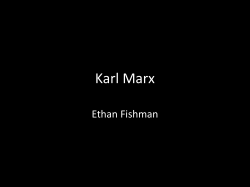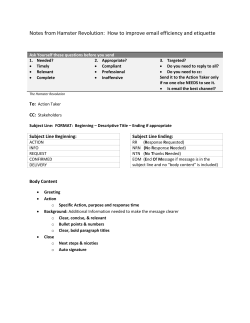
Writing into the Day Guernica
Writing into the Day Guernica •What is the mood of the painting? •What symbols can you make out in the painting? •What do these symbols mean? •What is the Purpose of this painting? •What is the value of this painting as a historical primary source? •What are the limitations of a painting in terms of its value as a historical primary source? Starnes 29 Quiz 1. 2. 3. 4. 5. 6. 7. 8. 9. 10. This was an artistic movement of the 1920s, most notably characterized by the work of Pablo Picaso. This intergovernmental organization is made up of Canada, South Africa, Australia, and other former members of the British Empire (Mozambique and Rwanda excepted). This was an ultra nationalist right wing movement developed under Mussolini. He was a Mexican Revolutionary and President of Mexico from 1911 to 1913. This group led the October Revolution(Which happened in November on western Calendars) in Russia, establishing communist rule. He was a survivor of the Long March who founded a new type of communism in China. He was the Nationalist opponent of communism in China, we was ultimately defeated and retreated to Taiwan What was the significance of the Sudetan Land and the Rhineland? This populist nationalist leader came to power in Argentina in 1946 He was the nationalistic Prime Minister of Japan during WWII Socialism, Communism, Fascism Let’s Review… • Liberalism was a reaction to feudal society, involving: focus on the individual, idea of responsible gov’t, support for Laissez-Faire capitalism, belief in individual rights and freedoms • Conservatism was a reaction to Liberalism, involving: desire to preserve tradition, support for common values, belief in strong gov’t control, idea that hierarchy and inequality were natural, support for aristocracies, suspicion of Laissez-Faire capitalism Comparing the two… LIBERALISM CONSERVATISM • man is naturally good • gov’t should interfere as little as possible in economic and social lives • individual rights are most important • people give gov’t the authority to rule, and can take it away if they are unhappy • man can be evil • gov’t should control economic and social/moral lives • stability and order of society most important • class hierarchy is natural, and so right to rule is hereditary Socialism • a reaction to the Industrial Revolution, characterized by: – rejection of the idea that the wealthy “deserve their wealth” because they created it - but instead an argument that wealthy exploit working classes – vision of society based on economic equality – belief in cooperation, production for benefit of all – idea of public ownership of means of production Socialism vs. Liberalism AGREE that… • all people deserve equal treatment DISAGREE about… • unlike Liberalism, Socialism did not believe people could develop individually • Socialism is not suspicious of the state – in fact, Socialists rely on gov’t to regulate services and to provide for common good Marx and Socialism • German Socialist writer (1818 – 1883) • believed society wasn’t made up of individuals, but of CLASSES (based on economics) • argued some classes were oppressed by others • during his lifetime, he looked at the working classes and argued they were oppressed by the capitalist classes – and that this was wrong • Marx envisioned the working class taking over the gov’t (through revolution) and then the gov’t taking over all industry Marxism to Communism Many Socialists disagreed with Marx’s ideas on: • need for revolution • complete abolition of all private ownership 1848: Marx and Engels publish the COMMUNIST MANIFESTO Communism The immediate aim of the Communists is the… formation of the proletariat into a class, overthrow of the bourgeois supremacy, conquest of political power by the proletariat." Karl Marx, Communist Manifesto, 1848 Communism is characterized by: • idea that history is guided by class struggle • desire to establish a classless, stateless society • belief in the abolition of all private ownership, • belief that this will come about through revolution Communism vs. Socialism • Communism emerged out of Socialism – and early communists considered themselves socialist • For modern communists: Communism is an advanced stage of Socialism Socialism is the stage between Capitalism (which is bad) and Communism (which is perfect) • Communism in practice has moved significantly away from the theory – disconnecting it from Socialism Fascism • a reaction to the rise of Liberalism, Socialism and Communism • developed in Italy under Mussolini • flourished in economically unstable countries prior to WWII Fascism vs. Communism Both were dictatorial in nature and both deprived individuals of their rights within society… BUT Communism • proposed revolution to overthrow capitalism and ban private ownership • called for a ‘withering away of the state’ with eventual cooperative public control Fascism • gov’t works within capitalism – works with people who control production to improve state economy • exalted the state above all, and used police and military to control people Why did Fascism object to Liberalism, Conservatism, Socialism and Communism? • Fascists saw these other ideologies as having failed because they couldn’t bring stability • Fascism is based on idea of absolute state • In a fascist state, citizens are obliged “to believe, to obey, to combat” for the good of the state – this is the direct opposite of the 19th century ideals of individual liberty and freedom Let’s Summarize… SOCIALISM COMMUNISM • man is naturally good – a bad environment makes people bad • gov’t should regulate economy – public ownership • equality is important, but the common good is the ultimate goal • people give gov’t authority, and can take it away change happens through REFORM • man is perfectible • eventually, the state will wither away and people will not need gov’t • all goods will be held in common • equality is important, but the common good is the ultimate goal • people consent to be governed until the state withers away – starts with REVOLUTION To continue… FASCISM • man needs to be controlled • the state is all important – the individual is only important insofar as how he contributes to the state • the gov’t controls all aspects of life – this brings stability and order • the people have no control over gov’t, and no right to rebel against gov’t • enemies of the state will be dealt with harshly A short list of Communist and fascist leaders of this period: • • • • • • • • • Benito Mussolini Francisco Franco Chiang Kai-shek Vladimir Lenin Mao Zedong Joseph Stalin Juan Peron Hideki Tōjō Josip Broz Tito With God on our Side • What commentary does this song make on the motivations of nations to go to war? • What is meant by a nation thinking they “have God on their side.” • Does the writer think that any war is ever really justified? Why? • Why did he include the verse on Judas Iscariot?
© Copyright 2025
















